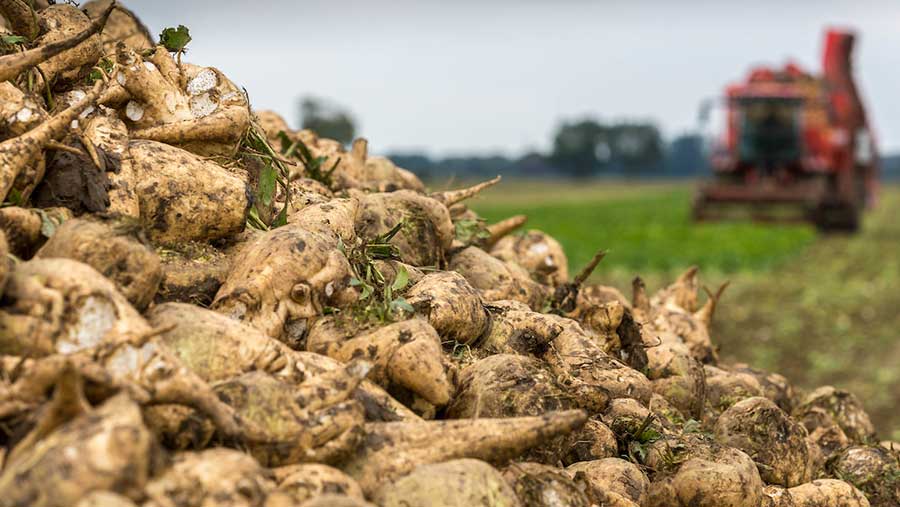FW Opinion: Bigger benefits when supply chain works together
 © Tim Scrivener
© Tim Scrivener Like most farmers, sugar beet growers have had a challenging year. A wet autumn and winter played havoc with harvest.
The exceptionally dry spring that followed hampered establishment of this year’s crop – reducing plant populations.
Those sugar beet plants that made it to summer are now being plagued by virus yellows.
Transmitted primarily by the peach-potato aphid, it is a potentially devastating disease that can reduce yields by as much as 50% in the worst-affected crops.
See also: ‘Ground-breaking’ sugar beet contract unveiled
About the author
 Johann Tasker
Johann Tasker
Chief reporter, Farmers Weekly
Contact:
E: johann.tasker@markallengroup.com
T: @johanntasker
Read more articles by Johann Tasker
Weighing up options
With the start of sugar beet lifting just weeks away, many growers will understandably be weighing up their options and considering the future of the crop on their farms.
Is it still a profitable and viable enterprise? Or has growing beet become just too risky? The 2021 sugar beet contract offered to growers by British Sugar this week seeks to address any concerns.
It follows months of price talks with NFU Sugar, which represents some 3,500 farmers growing about 105,000ha of sugar beet. At £20.30/t, the 2021 base price for sugar beet is nothing to write home about. In fact, it is equivalent to the price received this year.
Defra’s refusal to let farmers amend existing countryside stewardship agreements unfairly penalises producers who have spent years working hard to look after the environment
But the contract offer does include some additional – and innovative – elements to help farmers keep growing beet.
The first of these is a £12m compensation scheme for growers affected by virus yellows. Under the scheme, British Sugar will pay farmers who deliver less than 90% of their contracted sugar beet tonnage 45% of the value of the shortfall.
Controlling virus yellows has been an increasing challenge for growers since neonicotinoid seed treatments were banned in 2018.
By under-writing the compensation scheme, British Sugar says it recognises the threat posed by the disease.
Futures-linked pricing
The second innovation is the introduction of a futures-linked pricing contract.
Initially open to up to 100 growers, it will give UK farmers access to the sugar futures market for the first time to decide when to fix a proportion of their beet price.
Of course, some growers could well decide that the offer is not enough.They will do their sums and choose whether to continue growing beet.
Others will judge that it means growing beet is still viable – and will sign up to do so for another year at least.
Both NFU Sugar and British Sugar have described the contract offer as groundbreaking. That might be going a bit far.
But there is no doubt that it spreads the potential risk and reward of growing beet more fairly between grower and processor.
Defra’s refusal to let farmers amend existing countryside stewardship agreements unfairly penalises producers who have spent years working hard to look after the environment.
Why? Because it leaves them at a disadvantage compared to farmers signing up to stewardship schemes due to start next year.
Those farmers can amend their applications to include land currently managed as ecological focus areas (EFAs), which are being abolished.
Difficult decision
Farmers already in stewardship now face a difficult decision. Should they retain their EFAs, even though they are no longer required to do so? Or should they bring that land back into production?
Many farmers will retain their EFAs – and the environmental benefits they bring. But it will be understandable if some don’t, especially at a time when farm incomes are under threat following a challenging year.
